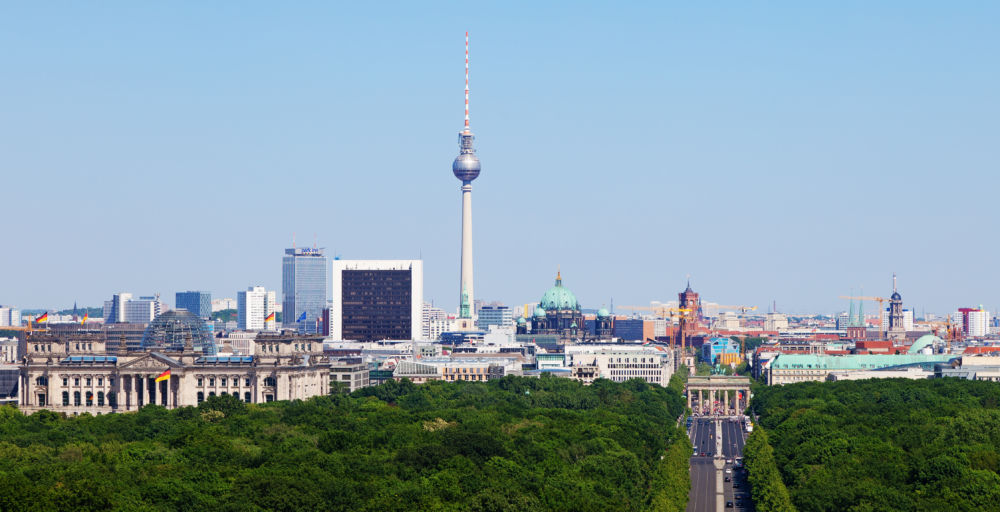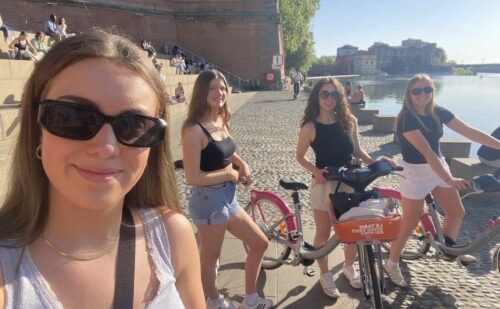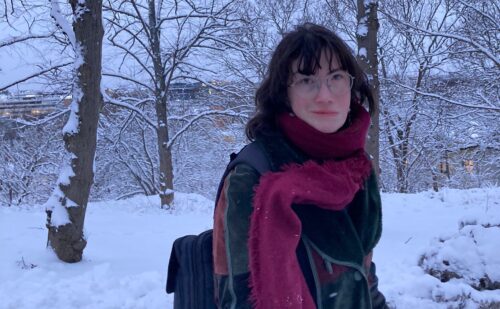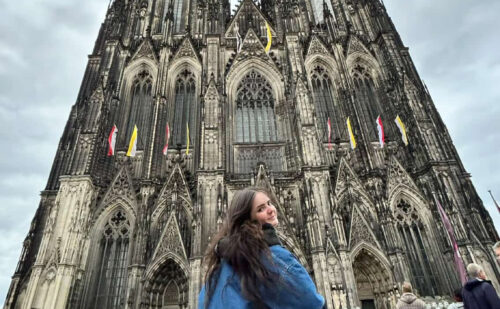“EU’s greatest innovation is not the euro, but Erasmus” Derek’s Erasmus+ Experience in Germany
Derek Scally

Not being one for panic attacks, it was a novelty to experience one on board the plane to Berlin.
The Erasmus exchange had been a long time coming, since I started studying German and journalism in Dublin City University four years previously. It was only as we were about to take off, however, that the enormity of my decision finally hit me.
Gripping the arm of my friend and fellow Erasmuser Caroline, I said in a low, urgent voice: “Germany! Germans! German!”
It was 1999, the Berlin Wall had vanished 10 years previously, just as I began learning German. A decade later, I was Berlin-bound having internalised only a moderate amount of German.
In hindsight, by complete chance, I had timed my arrival well: after 50 years on the Rhine, Berlin was in the process of becoming German capital once more.
I’d missed the Weimar Republic, the war, the wall and the rest, but I found myself entering on the ground floor of a new era, taking the glass elevator up to the roof of the Reichstag and the spectacular glass-and-mirror dome, surrounded by a thicket of cranes over the still unfinished city.

The Berlin hype was still some years off so I had peace to explore the German capital on my own steam. Cycling home in the wee hours through the Brandenburg Gate it was always a sobering moment to cross the former death strip. And no matter how worse for wear, I also liked to nod up at my favourite horse in the Quadriga on top.
Imagine my delight when one long evening and early morning, I could swear the horse nodded back.
There were so many delights in Berlin that summer that soon I skipped lectures at Humboldt University in favour of time at the university of life, opening hours midnight to 6am.
It was on one of these long nights, on my third or fourth beer in scuzzy bar somewhere, when I finally dared open my mouth with the locals and leap into a language with its own rhythm, symmetry and beauty.
It was this crucial breakthrough – unlikely on a short holiday – that helped me out of my English-language comfort zone, a monolingual Ivory Tower so comfortable that most of us don’t even realise they are residents.
In an era where Dublin favoured Boston over Berlin, I learned to enjoy the slower pace and greater freedom at German universities, institutions that favoured a broad, Humboldtian education over employer-friendly cramming.
My Erasmus time in Berlin taught me that the EU is not about Brussels institutions, but about people. And the EU’s greatest innovation is not the euro, but Erasmus.
It has brought together generations of young Europeans – by no means all privileged Brussels bureaucrats-to-be – and allowed them learn how much more unites than divides us in Europe.
The only problem with my Erasmus time in Berlin was that it was too short. So I went back to Dublin, turned on my heel and came back to Berlin. I’m still here and the only time I have panic attacks now is when I wonder: without Erasmus, where would I have ended up?
Want to have your Erasmus+ experience featured? Get in touch!


